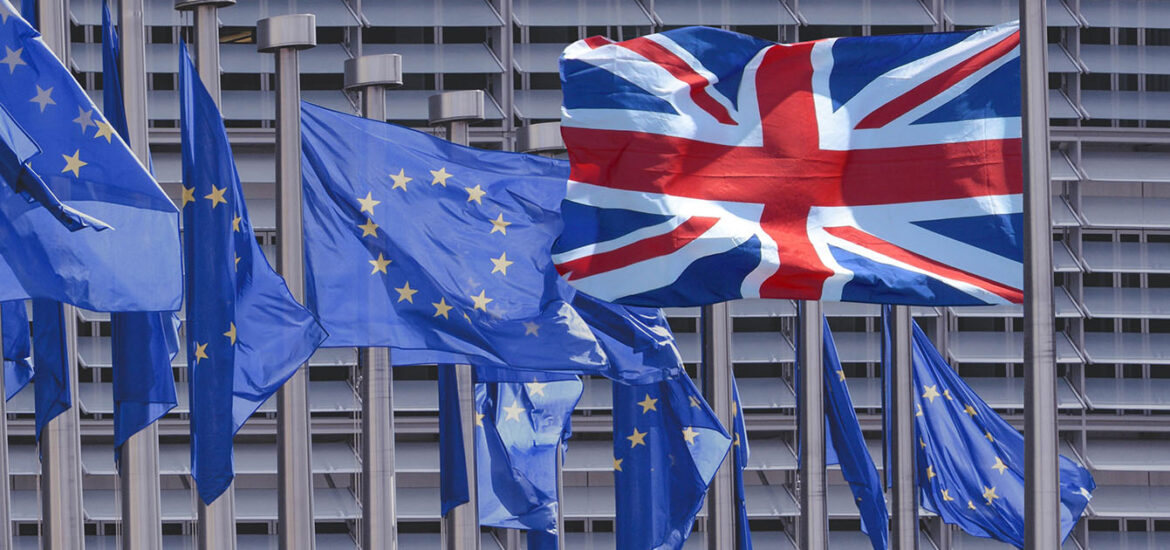After nine months of negotiations, the UK and the EU have reached the UK-EU Trade and Co-operation Agreement that will govern large bilateral trade worth more than £650 billion. Coming against the backdrop of surging Covid-19 cases in the UK, the deal sets out a new relationship with the UK’s biggest trading partner. We look at the main aspects of the deal and their impact on businesses after the UK became a so-called “third country” — one that is outside the EU’s single market and customs union.
Trade in goods
The agreement, which appears to mostly cover trade in goods, ensures zero tariffs or quotas on trade between the UK and the EU for goods produced in either of these markets. But to qualify for zero-tariff trade, exporters will need to demonstrate the origin of their goods to benefit from the preferential tariff rates agreed in the trade agreement. This requirement, also known as rules of origin, means that exporters need to certify that their goods are locally sourced to avoid tariffs. To qualify as locally sourced, UK’s goods must have approximately 50% of UK content for most products, which is incredibly hard in many cases — particularly challenging for companies with complex international supply chains. These rules will not come into effect before the end of the year to give companies exporting goods between the UK and the EU enough time to provide the supporting paperwork from their suppliers proving their goods are eligible for zero-tariff access to the EU. But although businesses will have twelve months to adapt to the new trading environment, the government is clear that they must make every effort to obtain suppliers declarations retrospectively. This means they should ensure that their goods comply with rules of origin before self-certifying that they’re eligible for zero tariffs, as, after the 12-month grace period, they could be required to provide these documents as part of compliance activity. Although the deferral of the rules of origin provides some breathing space, there is not enough clarity over the issue, particularly around the treatment of potential early errors before companies become fully adept with red tape introduced by the agreement. Although there will be no tariffs or quotas on goods for qualified goods, a delicate “rebalancing mechanism” was introduced to preserve the EU’s “level playing field” with the UK. Subject to arbitration, this mechanism allows the EU to restrict access to the European market if the UK diverges too far from EU standards. Under the rebalancing mechanism, potential tariffs don’t always need to be applied to the same policy area where the dispute occurs. Despite a tariff- and quota-free trade deal at present, there is no guarantee in this agreement that this will remain in the future. Thus, although the level playing field agreements allow the UK to deviate from EU rules, such a decision may prove not to be worthwhile in many cases. But this time, disputes and arbitration mechanism will not fall under the European Court of Justice realm but will be subject to an arbitration panel instead. All those decisions would have to go to an independent arbitration panel involving representatives from both sides and independent experts or judges. Since it’s not always easy to prove that fair competition is being distorted, the new arbitration system’s role will be crucial and could become even controversial. Trade is expected to become a lot more burdensome, with a complex set of new customs and regulatory checks, slowing down cross-border economic activity while businesses adjust to the new reality. What was once unrestricted trade flow now will become subject to red tape, including rules of origin, safety checks, customs declarations and stringent local content requirements.
Professional services
As the trade deal failed to achieve pan-EU mutual recognition of professional qualifications, there will no longer be automatic recognition of licenses and professional qualifications. This will likely have a negative impact on trade in services, a sector that makes up close to 80% of the UK economy and one where the UK has a comparative advantage. This means that professional services such as accountancy, auditing, legal services, engineering, advertising, market research, recruitment services, etc. must have their qualifications recognised in each EU member state where they want to work. Short-term business trips and temporary secondments of highly skilled employees will be excluded from this regime.Click here to learn more.
